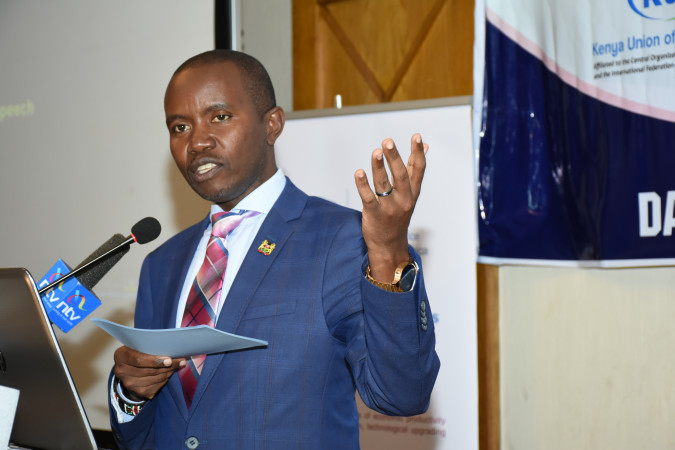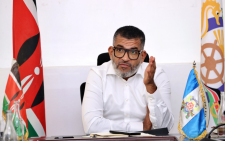Uproar greets ICT Bill as Uhuru asked to reject it

Fierce opposition has met the passage of the controversial Information Communication Technology Practitioners Bill that spells tough conditions for one to practice as an IT professional.
The proposed law was adopted by the National Assembly before the House dispersed as its term ended last week has attracted the wrath of ICT Cabinet Secretary Joe Mucheru and Azimio One Kenya presidential candidate Raila Odinga who have opposed it saying it was retrogressive.
ICT professionals have also come out fighting, warning against the passage saying it would make it difficult for thousands of young people who are making a living from the sector to thrive.
The Bill seeks to establish a regulatory body called the ICT Practitioners Institute that will be tasked with regulating the industry and issuing licenses to those joining the sector. The institute is to be run by an 11-member council.
Raila, who is seeking to lead the nation after the August 9 elections, wrote to President Uhuru Kenyatta asking him not to assent to the Bill sponsored by Nominated MP Godfrey Osotsi saying it would damage local growth of ICT.
“It negates the goals and visions of the national ICT policy and digital strategies. It amounts to regulating talent, which damages innovation and limits growth,” said Raila in the letter sent at the weekend.
The Bill states that any person that seeks to be in the sector must have a Bachelor’s degree in an ICT-related field including computer science, information technology, telecommunication, computer engineering from a recognised university. Those who have studied electrical and electronics engineering, mathematics or physics will only be allowed to join the field if they have had a one-year experience in the sector.
Those with a diploma in ICT will only be registered upon working in the sector for at least three years. Anyone else with any degree will qualify for a license after also three years in the sector.
In a memorandum to Parliament opposing the adoption of the Bill, Mucheru said the proposed law was detrimental to efforts to expand the sector adding it was wrong to reduce the management of the expansive industry to 11 members of a Council.
The CS said thousands of young IT professionals were joining the sector every year and it would be difficult for them to put into practise what they have learnt if they were to be put under a single body.
ICT bottleneck
“This Bill is likely to create a bottleneck whereby the 10,000 or so ICT-related practitioners who come into the industry each year will have to rely on 11 persons to enable them to practice or even receive payments for their services,” the CS said in the response sent on April 2.
The CS also said the graduates will have to wait for years to be licensed. The Bill also requires one to renew the license every year.
“The licensing fees will place additional burdens on both ICT training institutions and young ICT graduates. The Bill condemns ICT innovators to wait 5 years and raise money for licenses before they can practice in the sector or receive fees for their services. This runs counter to Kenya’s efforts to spur innovation and reduce unemployment,” he added.
Yesterday, the MP defended the Bill saying they conducted adequate public participation before it was passed in the House.
“We need this law in place to actualize various other pieces of legislation like the Cybercrimes Act. The hullabaloo we are seeing is uncalled for because we gave each and every person an opportunity to give their views on it,” said Osotsi, who is vying for Vihiga Senate seat on ODM in the coming polls.
The Law of Society of Kenya also opposed the Bill saying it did not clearly define who an ICT practitioner is.
In a report by the House’s ICT Committee, LSK said it was difficult to put a hand on who was a qualified professional saying many underage Kenyans were already immersed in the sector.
“They indicated that there are young techno savvy Kenyans who are under the age of 18 years and who lack access to the ICT related gadgets, but have the capacity to offer ICT services and be paid in kind, for example, a teenager repairing his parent’s phone or computer or installing a mobile application,” said the ICT committee in a report tabled in the House.
The Osotsi Bill also spells punitive penalties for anyone found practising without a licence.













